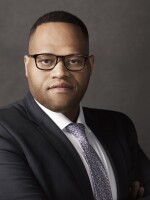Left behind and betrayed. Those are just some of the words immunocompromised families use to describe how they feel about the new school year. While students headed back to the classrooms, for some families that’s simply not an option. They’re fighting for a statewide virtual learning option, and now they’re getting some help.
Sarah Eagan, Connecticut’s Child Advocate, recently signed on to a letter to Connecticut’s education commissioner asking her to ensure that students with disabilities and students in immunocompromised families be afforded modifications so that they’re not excluded from participation. The letter points out that Connecticut has no statewide remote learning program.
For Marney White, a professor at Yale’s School of Public Health, the absence of a statewide virtual learning program is perplexing.
“I can’t make sense of it,” White said in a recent interview for CPTV’s CUTLINE. “I’ve been trying to understand how it is that they would deny a remote alternative during the public health crisis of a lifetime.”
White was happy to see Eagan write the letter to CSDE. She feels like her family is being discriminated against.

“I absolutely do. We saw the application of a full remote synchronous, instructive period, the entirety of last year, we know it’s possible,” said White. “I’m still really not understanding why the aid funds were not applied towards education, considering each locality as well as the state were given funds specifically for COVID relief. So what better way to provide that?”
White’s 10-year-old son, Lane Mayville, is enrolled in the Fairfield school district, where he is supposed to receive four hours of remote instruction. On the day Connecticut Public interviewed White, she said Lane had only 30 minutes of instruction.
Eagan says her letter was intended to remind districts that they can’t say that the only accommodation they will make is to provide a few hours of remote education.
“The district has to pursue it to state and federal law, engage in an individualized discussion about what the child’s needs are,” said Eagan. “[Asking] what's preventing them from coming to school and how their educational needs can be met in the least restrictive environment appropriate to that child.
“So the letter is really about saying children have that right,” said Eagan. “Families have that right, and the state department of education has to play a role, a leadership role in ensuring that districts are knowledgeable and informed about federal and state anti-discrimination laws and able to carry out that mandate.”

Eagan says the state Department of Education has acknowledged the letter, and a group of lawyers and advocates are meeting with the CSDE monthly. While they have not talked specifically about the letter, Eagan says it’s a step in the right direction.
Connecticut legislators are exploring ways to create a statewide remote learning option. Some lawmakers recently took a trip to Massachusetts to tour a remote learning academy. In the latest edition of CPTV’s CUTLINE, reporter Catherine Shen talks to legislators about the process of starting a remote learning academy in Connecticut.
While it will be a few years before that’s possible in Connecticut, Lane has a plea for the decision-makers.
“When they offered a remote learning option, I’d say, please do that again,” said Lane. “That was an incredible experience for me, and I had so much fun. “It would really make me smile if you brought it back.”


